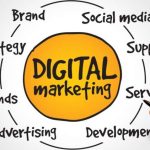
In business, sustainability is about thriving in a manner that conserves and replenishes natural resources. Today’s consumers are more involved than ever in improving the world. They support companies who share their values and are ethical. Many companies have become good stewards of the human race and planet.
What is sustainability and how does it relate to marketing?
Enter sustainability. Sustainability is the prevention of depletion of resources to maintain ecological balance. It means that you are aware of your impact on the environment. In recent years sustainability has become an important factor in how consumers choose to interact with brands. Prospective consumers are more interested than ever in how companies strive to improve the world and their sustainability initiatives. What are they for? What are the organizations they support? What do they do to give back?
These questions are now more important to consumers in today’s world, where there are many challenges on the environmental, social and economic fronts. They have replaced the old “what is it going to cost me?” “how long will it take until I receive it?” and “what do I get out of it?” The “green” initiative must go beyond the bottom line of an organization. It’s the digital agency that has to communicate this mission in the best way to their audience.
Differentiators of Sustainable Brands
Sustainability has become a key part of the customer experience for many brands, which in turn has created a more loyal clientele. Recent research showed that 77% more consumers would be willing to buy from a business that places a high priority on corporate social responsibility. A study revealed that 9 out of 10 leaders in business believe that their customers will hold them responsible for the environmental impact that their companies create.
Some of the biggest companies have taken advantage of this opportunity, making sustainability a key differentiator in their markets and turning social responsibility into a competitive advantage. Amazon has committed $2 billion towards a Climate Pledge Fund, which will invest in companies who make sustainable products, technologies, and services to help decarbonize our planet. Dell Technologies has announced their goal to reduce carbon emissions by half by 2030. They also plan to increase their recycling program, and use more renewable energy in their global business properties.
Some brands are using sustainability as a way to differentiate themselves. Patagonia’s “1% for the planet” initiative is described as a self-imposed tax. Since 1985, the company has donated over $100 million in support of the protection of land and water, climate change, communities, biodiversity, etc. Patagonia also supports and launches grassroots environmental initiatives, and makes more than 70% their product line out of recycled materials.
Companies that emphasize sustainable practices gain loyal customers in a wide range of verticals. Brands that choose to reduce their carbon footprint will stand out in a market crowded with similar products.
Sustainable Food
Danon, Nestle and General Mills are among the big food companies that have begun to play a greater role in environmental sustainability. What’s good to the environment has become good business.
The COVID-19 pandemic of 2020 made consumers acutely aware that our food supply was under threat. We can expect that consumers will continue to gravitate towards brands which are both socially and ecologically responsible in 2021 and beyond. COVID-19 brought to light the social inequalities and health problems that exist today. This has led many companies and organizations to place a greater emphasis on supporting communities and ensuring no socioeconomic group is left out.
Why Do You Need a Sustainable Marketing Strategy
Customers are increasingly looking for brands who share their values. It is essential to showcase your Internet Marketing Service in a way that will appeal to both your current and potential customers.
There is a growing consumer base who are looking for brands that share the same values as them. By deploying a sustainable marketing campaign to show how your brand implements eco-friendly packaging, products, and/or service, you will appeal to this consumer base (and the planet will also thank you).
The younger generations, who have more purchasing power, are even more concerned about sustainability. You need to demonstrate that your brand embodies and shares these values of social responsibility and environment activism if you want to attract younger customers.
Best practices for sustainable brands (messaging, positioning and messaging that resonate)
Brands that are successful and sustainable know the importance of authenticity. It is at the core of all they do to ensure their messages resonate with consumers. Every campaign must align with the values of target customers.
Brands that have been successful in this area are those who focus on their origin stories and themes like transparency, social responsibility, environment integrity, emotional connections, and most importantly, being consistent.
Brands that stand out in a crowded market tell a story and evoke an emotional response, all while creating value. They are consistent in their beliefs and ensure that anyone with whom they work is a person who shares their values. They live what they preach and have an interesting story that sets them apart. What is your brand and Why should companies be concerned about philanthropy?
You should define your sustainability strategy and assess your brand more than ever. What is your organization doing to improve the world for future generation? The future of business is “green”. Are you ready?





